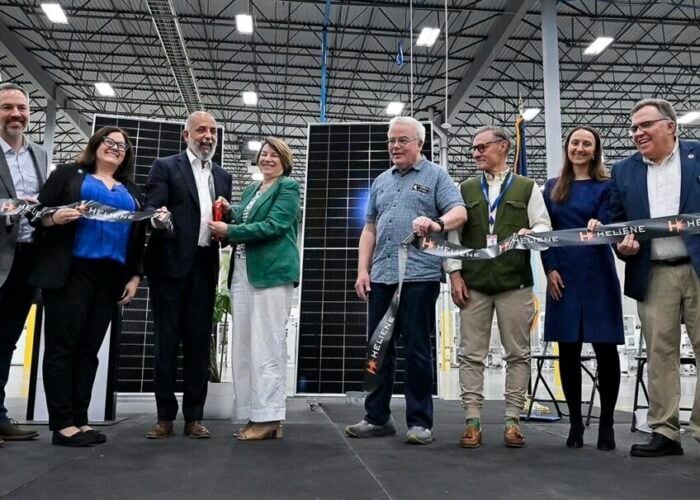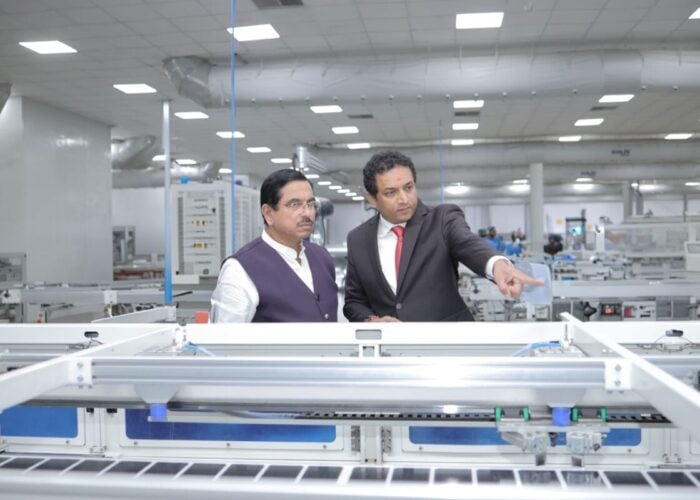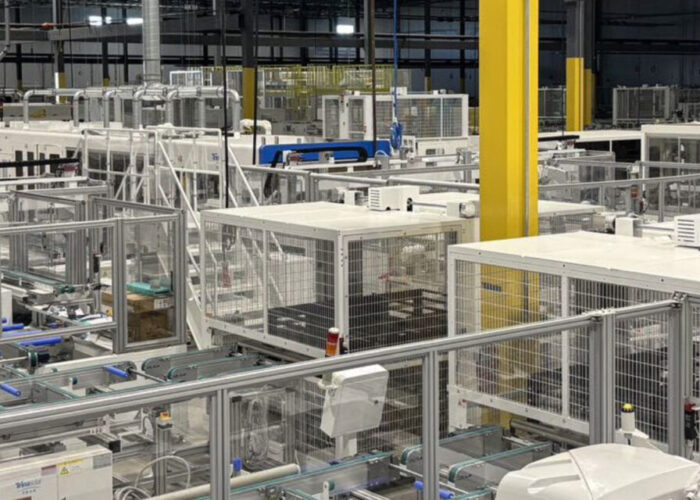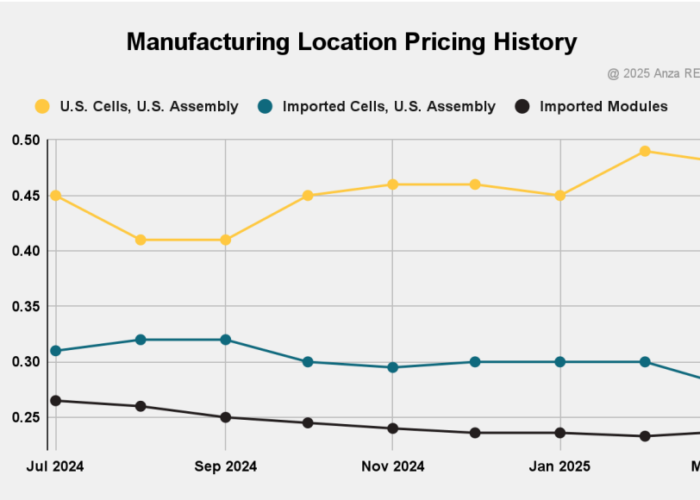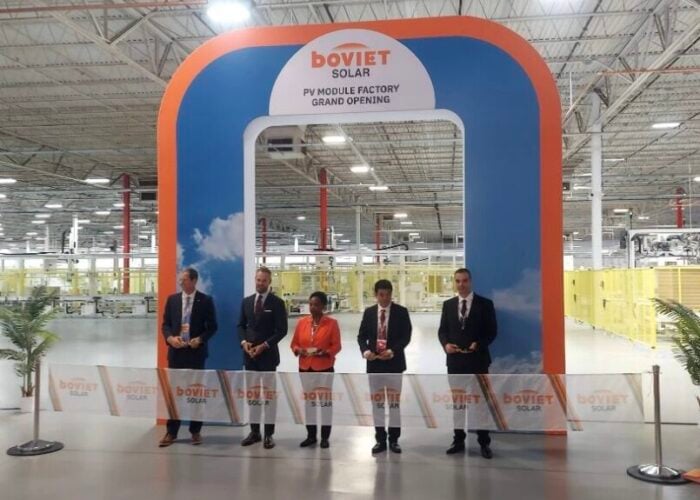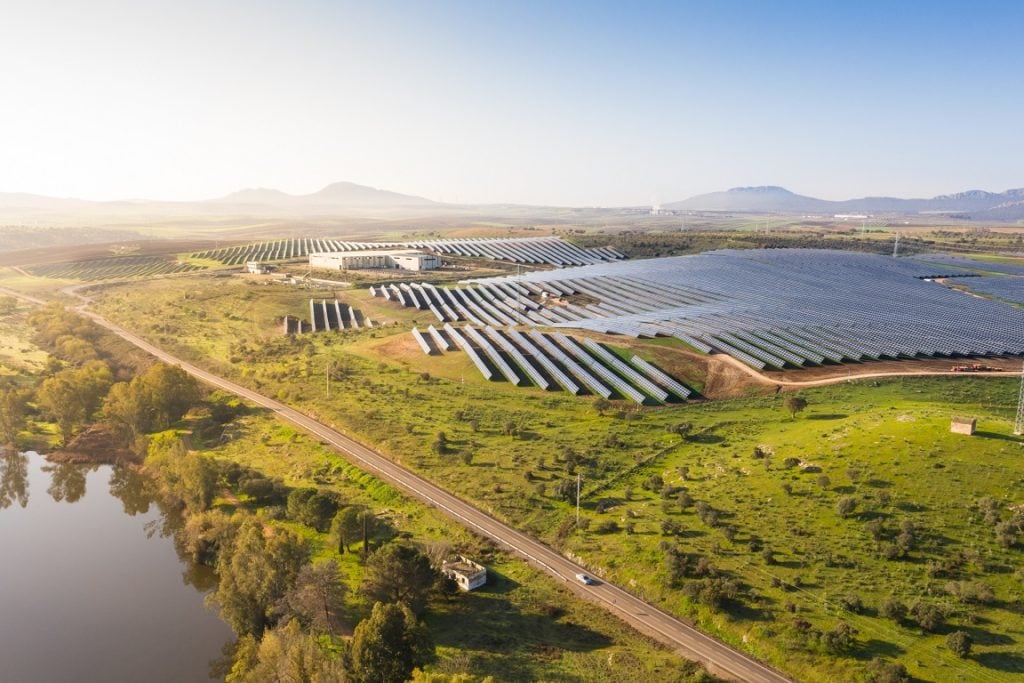
The European Commission has released its Green Deal Industrial Plan based upon four pillars aimed at scaling up domestic manufacturing capacity for net-zero technologies.
The plan – which was first announced during the World Economic Forum in Davos earlier this year – will be based on four pillars: a predictable and simplified regulatory environment, faster access to funding, enhancing skills and open trade for resilient supply chains.
Unlock unlimited access for 12 whole months of distinctive global analysis
Photovoltaics International is now included.
- Regular insight and analysis of the industry’s biggest developments
- In-depth interviews with the industry’s leading figures
- Unlimited digital access to the PV Tech Power journal catalogue
- Unlimited digital access to the Photovoltaics International journal catalogue
- Access to more than 1,000 technical papers
- Discounts on Solar Media’s portfolio of events, in-person and virtual
Ursula von der Leyen, president of the European Commission, said: “We have a once in a generation opportunity to show the way with speed, ambition and a sense of purpose to secure the EU’s industrial lead in the fast-growing net-zero technology sector.”
Within its first pillar of simplifying regulatory framework, the Commission will propose a Net-Zero Industry Act that will identify renewable industrial capacity and provide a regulatory framework with simplified and fast-track permitting for its quick deployment.
It will be complemented with a Critical Raw Materials Act for sufficient access to the materials – such as rare earths – vital for manufacturing key technologies, and the reform of the electricity market design, to make consumers benefit from the lower costs of renewables.
The second pillar will aim to give faster access to funding and investing in renewable manufacturing in Europe, within a level playing field between state members while making it easier to grant necessary aid to fast-track the green transition.
The European Commission (EC) will consult member states to transform the State aid Temporary Crisis Framework into a Temporary Crisis and Transition Framework to facilitate and accelerate Europe’s green transition. The amendments include two points which would further facilitate the roll-out of renewable energy and support investments in the production of equipment necessary for the net-zero transition.
The support would include the production of solar panels, batteries, electrolysers or wind turbines among others with “proportionate” aid allowed to match the level supported in third countries outside of the EU. These new provisions would be implemented until 31 December 2025.
To help access REPowerEU funds, the EC adopted new guidance on recovery and resilience plans, explaining the process of modifying existing plans and the modalities for preparing REPowerEU chapters.
In terms of solar manufacturing, the EC recently launched the European Solar PV Industry Alliance to promote investment in domestic manufacturing with the target to reach an annual capacity of 30GW by 2025 across the value chain. Both the Alliance and the Green Deal Industrial Plan will be key elements for the EU to reach its REPowerEU target to deploy 320GW of solar capacity by 2025.
Furthermore, it will revise the General Block Exemption Regulation to increase the thresholds for support for green investments which will streamline and simplify the approval of Important Project of Common European Interest-related projects. Existing EU funds will be used to finance clean tech innovation, manufacturing and deployment.
Margrethe Vestager, executive vice-president in charge of competition policy, said: “Competitiveness in Europe cannot be built on State aid. But support may be needed to fulfil our objective to get rid of fossil fuels as quickly as possible. The decarbonisation of the EU industry could, temporarily, require an additional boost and incentives to stimulate and retain investments in strategic clean tech sectors in Europe.”
The third pillar of the EC’s Green Deal Industrial Plan revolves around enhancing skills needed in the green transition, as between 35-40% of all jobs could be affected by it, according to the EC.
For that reason, the Commission will propose to establish Net-Zero Industry Academies to roll out up-skilling and re-skilling programmes in strategic industries. The solar industry will require one million solar workers – more than doubling the number recorded in 2021, which employed 466,000 – by 2030 in order for the European bloc to reach its target of 750GW installed capacity by the end of the decade.
The EU solar industry employed more than 450,000 full-time employees as of 2021, according to data from trade body SolarPower Europe, and would need to double the actual numbers by 2030 as it will require one million solar workers by the end of the decade.
Its fourth pillar will be centred on open trade for resilient and diversified supply chains and thus working on free trade agreements and other forms of cooperation with EU partners to support the region’s green transition.
It will also explore the creation of a Critical Raw Materials Club that will connect countries which are rich in these resources with raw material consumers to secure a safe supply of the materials through a competitive and diversified industrial base, along with clean tech and net-zero industrial partnerships.
However, the Commission will protect the EU from unfair trade in the renewable sector and will use the necessary instruments to ensure foreign subsidies do not distort competition in the EU.

